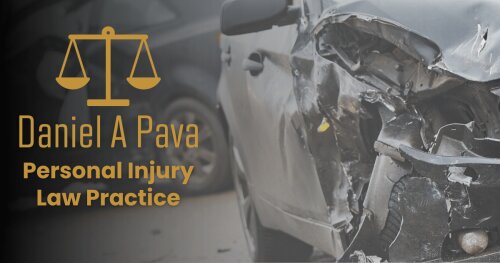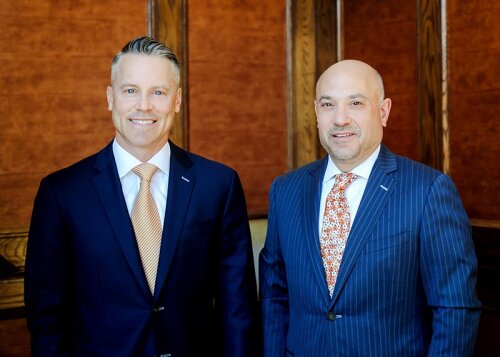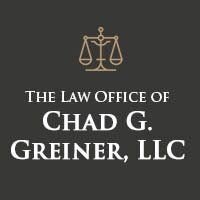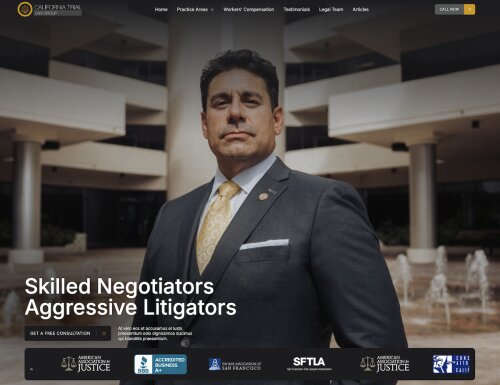Best Toxic Mold Lawyers in Georgia
Share your needs with us, get contacted by law firms.
Free. Takes 2 min.
Or refine your search by selecting a city:
List of the best lawyers in Georgia, United States
About Toxic Mold Law in Georgia, United States
Toxic mold refers to certain types of mold that produce hazardous mycotoxins, which can cause serious health problems including allergies, respiratory issues, and other long-term illnesses. In Georgia, toxic mold is a growing concern, especially in residential and commercial properties affected by water damage or poor ventilation. While there are no specific statewide statutes dedicated solely to toxic mold, property owners, landlords, tenants, employers, and buyers have legal obligations related to the disclosure, remediation, and prevention of mold hazards. Understanding your rights and responsibilities can help protect your health, property value, and legal standing.
Why You May Need a Lawyer
Legal issues involving toxic mold can be complex and require specialized knowledge. Here are common situations where legal assistance may be necessary:
- If you experience health problems and believe they are caused by toxic mold in your home or workplace.
- If your landlord refuses to address persistent mold problems in your rental unit.
- If you purchased a property and discover toxic mold that was not disclosed prior to the sale.
- If you operate a business and need to ensure compliance with health and safety regulations.
- If you face legal action from tenants, employees, or buyers relating to mold exposure.
- If you need to negotiate with insurance companies for property damage or personal injury claims.
An experienced attorney can help you understand your rights, evaluate your claims, document evidence, and navigate the complex legal landscape surrounding toxic mold in Georgia.
Local Laws Overview
Georgia does not have comprehensive regulations specifically targeting toxic mold, but several legal concepts and statutes are relevant:
- Landlord-Tenant Law: Georgia law requires landlords to maintain rental premises in habitable condition. Failure to address moisture or mold problems may be considered a breach of the rental agreement or warranty of habitability.
- Real Estate Disclosure: Sellers must disclose known material defects in a property. While there is no explicit mold disclosure law, known mold issues that affect the value or safety of the property should be disclosed to buyers.
- Negligence and Personal Injury: Property owners can be held liable for injuries caused by toxic mold if they fail to take reasonable steps to correct known hazards.
- Civil Suits: Plaintiffs can seek compensation for property damage, medical costs, and related losses stemming from mold exposure through civil lawsuits.
- Building Codes: Local municipalities may have building codes addressing ventilation, plumbing, and water damage prevention, which can affect liability if not followed.
Since mold is considered an environmental and public health issue, local health departments may play a role in inspections and code enforcement when health hazards are reported.
Frequently Asked Questions
What qualifies as toxic mold?
Toxic mold refers to molds that release mycotoxins. Common types include Stachybotrys chartarum (black mold), Aspergillus, and Penicillium. Not all mold is toxic, but any substantial mold growth can trigger health or property concerns.
Is there a specific law about toxic mold in Georgia?
Georgia does not have a law that focuses specifically on toxic mold. However, mold may be addressed under landlord-tenant laws, real estate disclosures, and personal injury statutes.
What are my landlord’s responsibilities for mold?
Landlords must provide safe, habitable housing. This generally includes fixing leaks, addressing water damage, and remediating mold. Neglecting to do so can breach the rental agreement and may result in legal liability.
Can I break my lease if there is toxic mold?
If the landlord fails to address significant mold issues, tenants may have grounds to terminate the lease, but this usually requires following legal procedures such as written notice and time for repairs.
Does my landlord have to relocate me if there is mold?
If the rental is deemed uninhabitable due to mold and the problem cannot be quickly resolved, you may be entitled to temporary relocation or alternative accommodations. This varies case by case.
How do I prove toxic mold caused my health issues?
Documentation is important. Obtain medical records, air or surface mold test results, photographs, and inspection reports to support your claim.
Are there deadlines for filing a lawsuit about toxic mold?
Georgia law generally provides two years to file personal injury claims and four years for property damage claims. Consulting with an attorney promptly is recommended.
What should I do if I find mold after purchasing a home?
Check your purchase agreement for disclosure obligations, gather documentation, and contact a lawyer to review your options, which may include negotiating repairs or pursuing damages.
Does homeowners insurance cover toxic mold damage?
Many policies exclude mold damage or limit coverage unless it results from a covered peril like a burst pipe. Review your policy and consult your insurer.
Who can inspect and test for mold?
Certified mold inspectors, industrial hygienists, or qualified environmental testing companies can assess and document mold issues in your property.
Additional Resources
Several organizations and governmental bodies offer guidance on toxic mold in Georgia:
- Georgia Department of Public Health: Provides tips on mold prevention and remediation.
- U.S. Environmental Protection Agency (EPA): Offers mold resources and health information.
- Georgia Association of Realtors: Advises on real estate disclosure responsibilities.
- Local city and county health departments: Can assist with inspections and code violations.
- Georgia Legal Aid: Offers legal information and resources for tenants and homeowners.
Next Steps
If you believe you are facing a legal issue related to toxic mold in Georgia, consider the following steps:
- Document the mold problem with photographs, written communication, and expert reports.
- Seek medical attention and keep records if you are experiencing health symptoms.
- Notify your landlord, seller, or responsible party in writing if you are a tenant or buyer.
- Contact your insurance company to review potential coverage.
- Consult a qualified attorney specializing in toxic mold or environmental law to understand your rights and legal remedies.
- Act promptly to protect your health, property, and legal interests.
A legal professional can evaluate your situation, help negotiate solutions, and represent you in court if necessary. Early action and proper documentation will strengthen your case and support a positive outcome.
Lawzana helps you find the best lawyers and law firms in Georgia through a curated and pre-screened list of qualified legal professionals. Our platform offers rankings and detailed profiles of attorneys and law firms, allowing you to compare based on practice areas, including Toxic Mold, experience, and client feedback.
Each profile includes a description of the firm's areas of practice, client reviews, team members and partners, year of establishment, spoken languages, office locations, contact information, social media presence, and any published articles or resources. Most firms on our platform speak English and are experienced in both local and international legal matters.
Get a quote from top-rated law firms in Georgia, United States — quickly, securely, and without unnecessary hassle.
Disclaimer:
The information provided on this page is for general informational purposes only and does not constitute legal advice. While we strive to ensure the accuracy and relevance of the content, legal information may change over time, and interpretations of the law can vary. You should always consult with a qualified legal professional for advice specific to your situation.
We disclaim all liability for actions taken or not taken based on the content of this page. If you believe any information is incorrect or outdated, please contact us, and we will review and update it where appropriate.
Browse toxic mold law firms by city in Georgia
Refine your search by selecting a city.














